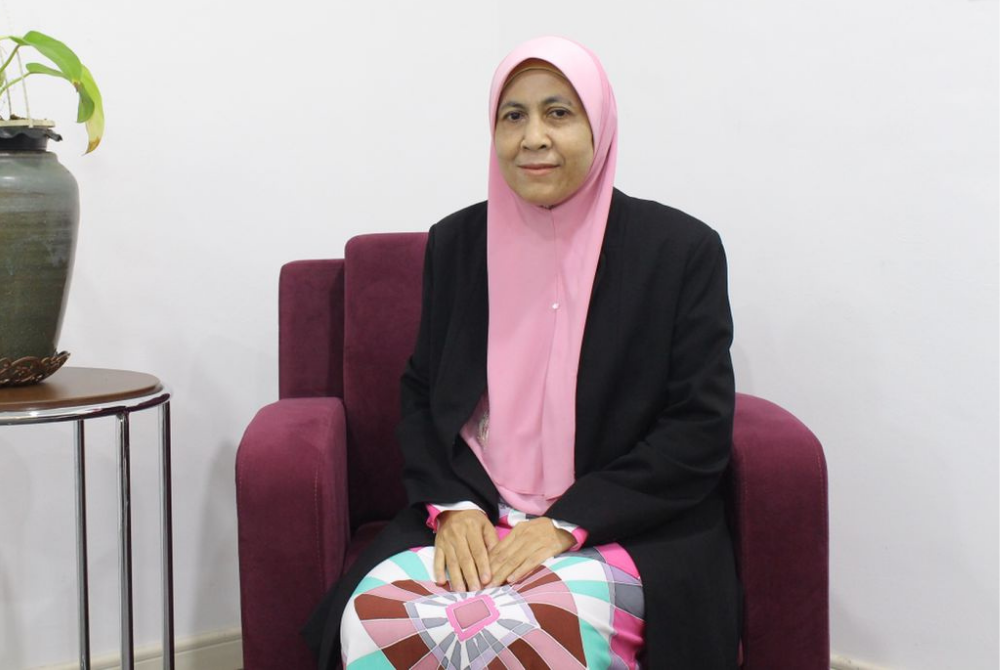Nephrologist says govt policies solid but not enough to educate the public on kidney diseases

BANGI – Policies formulated by the government have solid foundations as the Health Ministry collaborates with various professional societies to produce detailed guidelines for individuals that pose the highest risk for chronic kidney disease (CKD).
Nephrologist Prof Dr Kamaliah Mohd Daud said the effectiveness of these approaches by the Ministry was three-pronged.
She said a multi-agency approach was being utilised by the Health Ministry to reduce the amount of non-communicable diseases (NCDs), which includes efforts to advocate the prevention and early treatment of chronic kidney diseases (CKD) by conducting screenings for the public.
She said clinical practice guidelines for patients with diabetes and hypertension - two conditions that were commonly known to develop into CKD - were also made available for the public on websites and platforms, both government and non-governmental bodies.
"These efforts, however, are not reaching the public, most of whom are not even aware that they have CKD.
"People aren't interested nor are they willing to go for treatment because they don't think it is a cause for concern," she told Sinar Daily in an interview.
Dr Kamaliah said often symptom-free in its early stages, individuals may not experience any notable symptoms until they have already reached advanced stages of the disease. Late detection of CKD makes up a large part of the reason why there is such a low percentage of individuals aware that they have CKD.
An important aspect in educating the public rests on the shoulders of general practitioners in local clinics, she said.
"At least advise the elderly to go for screening. As for the younger generation, they need to know that being young and seemingly healthy does not exempt them from CKD," she added.
Asked what solutions she had to combat the issue, Kamaliah suggested that Perkeso should replicate their free breast cancer screening vouchers, for kidney health screening as well.
She also said that the government should allow tax exemptions for employers that send high-risk employees for screenings, as this would encourage more organisations to join in efforts of increasing awareness of CKD and early diagnosis among affected Malaysians.
Dr Kamaliah said there are patients who completely reject Western medicine and prefer to opt for traditional herbs and supplements as their primary treatment instead.
“Such misconceptions that occur among both the youth and the elderly are the reason why health professionals nationwide must make it a point to guide the public.
Dr Kamaliah explained that it was important to take care of our kidneys as deterioration in kidney health can affect any part of the body - mental disturbance, seizures, heart and lung issues due to fluid overload, even gut complications.
"Patients can develop severe symptoms like restless legs, nerve function, and itchiness.
"As a nephrologist who looks after patients, especially during their later stages of CKD, I have seen a lot of suffering caused by complications from diabetes, including anemic lethargy," she shared.
Financial complications were also a huge issue should chances for early detection and control of CKD pass by.
She said the costs for dialysis and medicine can easily reach up to RM3,000 a month, for the rest of one's life.
However, all was lost. Many things can be done to slow down the progression of CKD, said Dr Kamaliah.
"If patients control their lifestyle and take the correct medication, it has been proven that the rate of decline in kidney function can be reduced by 50 per cent," she said.
The third and uncommon form of dealing with CKD in Malaysia after haemodialysis and peritoneal dialysis was organ transplant.
Unlike other parts of the world where that would have been the first necessary step in eliminating CKD, the lack of availability of kidneys to be transplanted causes dialysis to overtake transplants as the natural solution.
Dr Kamaliah shared some worrying statistics were in 2017, there were more than 30,000 people undergoing dialysis treatments but only two-thirds of them were on the waiting list for a transplant.
Despite there being 29,000 pledges to donate, she said only 600 kidneys were transplanted, 30 of whom were living donors.
“Many factors contribute to both the public's willingness to donate as well as receive a kidney transplant, one of which is religion - although all religions allow transplants, many still have the idea that a non-Muslim cannot donate to a Muslim, for example.
“Some donors that have passed on but pledged to donate prior to their death have family members that do not permit the donation to take place.
“I had a middle-aged dialysis patient that was reluctant to get a kidney donated by a family member because he felt that at his old age, such a burdensome surgery is not worthwhile.
“But I have also noticed that younger people are often more accepting of transplants, such as a 30-year old insurance agent patient of mine who agreed to undergo surgery at my suggestion," she said.
Kamaliah urged those eligible for a kidney transplant to enlist themselves as Malaysians are lucky enough to have the costs fully subsidized by the government. At most, patients would have to pay RM500 to RM1,000 for medicine post-surgery.
This, she said, was in comparison to neighbouring countries such as China, where a transplant can easily cost as much as RM300,000.












